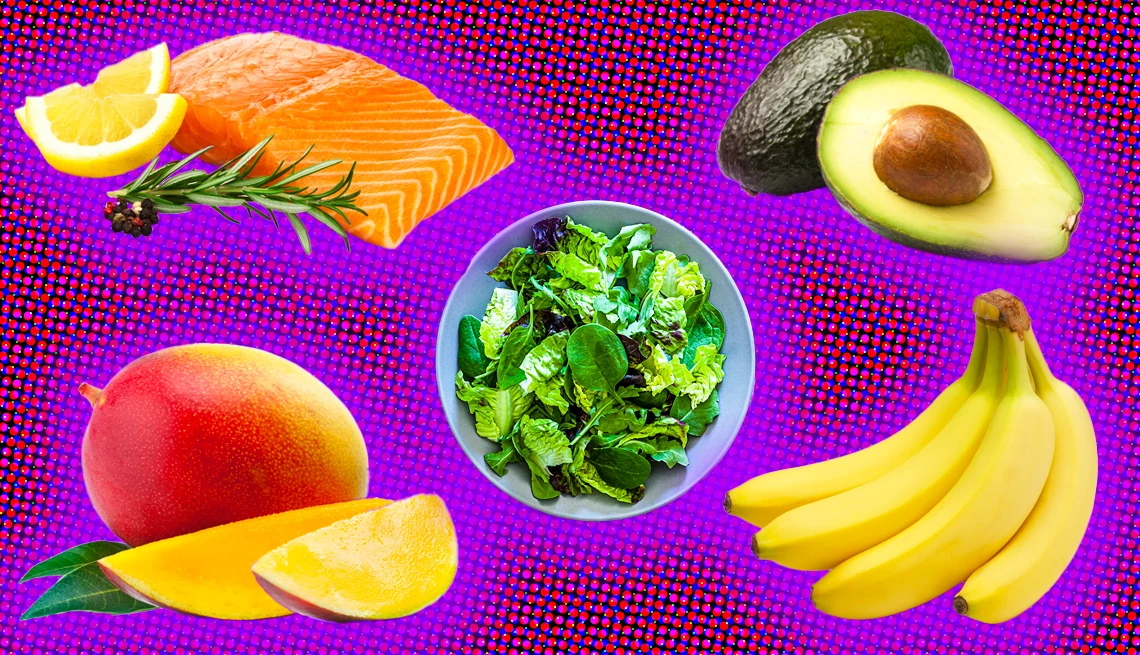AARP Hearing Center


Key takeaways:
- Hearing loss and heart disease may be connected.
- A healthy diet is associated with a lower risk of hearing loss.
- There’s a difference between getting nutrients from foods and getting them from supplements.
- See what foods may be good for your hearing.
While there’s no evidence that what you eat can reverse hearing loss, studies show that eating a healthy diet may help delay or slow the progression of hearing decline.
Take the connection between cardiovascular disease and your hearing, for instance. “The association of age-related hearing loss with heart disease has been well-documented,” says endocrinologist Robert H. Eckel, M.D., emeritus professor of medicine at the University of Colorado Anschutz Medical Campus.
Hearing loss and cardiovascular disease
Normal hearing relies on good circulation of oxygen-rich blood. The sensitive hair cells in your inner ear convert sound waves into electrical impulses that your brain interprets as sound. Poor blood circulation or inadequate oxygen damages these sensitive cells, Eckel says. “To reduce the risk of heart disease, it’s important to eat a diet rich in fruits, vegetables and whole grains, lean poultry and fish,” Eckel says.
Hearing loss and what you eat
There’s more evidence that eating a healthy diet could be a factor in lowering your risk of hearing loss. Hearing loss is often thought to be unavoidable as we age, says Sharon Curhan, director of CHEARS, the Conservation of Hearing Study at Brigham and Women’s Hospital in Boston. The CHEARS research team monitored the hearing and diets of more than 70,000 women for 22 years and published a paper on the study in the Journal of Nutrition. “We found that an overall healthier diet, including eating two or more servings of fish each week, was associated with a reduced risk of hearing loss,” Curhan says.



































































More From AARP
Should You Take a Fish Oil Supplement?
People take it to protect their brain, joints and heart. But does it live up to the hype?
Survey Links Cheese to Nightmares
Results of a survey show that people believe cheese and dairy were linked to nightmares
25 Healthy Snacks to Eat After Age 50
Craving a sweet or savory bite? Try these